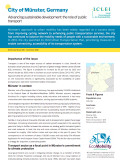
This report features how Münster, Germany, is developing a people-centered transport system, with efforts to improve accessibility, connectivity, inclusivity, and sustainability.
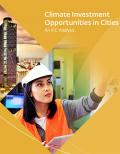
This report provides investment potential estimates across six key sectors (waste, renewable energy, public transportation, water, electric vehicles, and green buildings). Sector-specific investment potentials are estimated at the global and regional levels. The report also addresses urban resilience, financing solutions, and includes six deep dives into specific cities – one from each region – representing various sizes and stages of development:
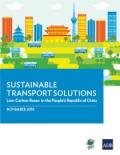
Low-carbon buses (LCBs), which include hybrid, plug-in hybrid, and different types of electric buses, have been promoted widely in cities in the People’s Republic of China (PRC). This report summarizes the experience of 16 cities in the PRC with an urban bus fleet of 70,000 units, and includes performance data on around 20,000 LCBs, of which nearly 10,000 are pure electric vehicles. The objective of this report is to show real world performance data on LCBs in the PRC, their environmental and financial impact, as well as policies used to promote LCBs.
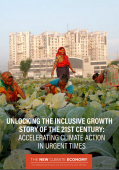
This report sets out the policy and investment priorities for growth that that is strong, sustainable, balanced, and inclusive, and will result in efficient, liveable cities; low-carbon, smart and resilient infrastructure; and the restoration of degraded lands while protecting valuable forests. It focuses on five key economic systems: energy, cities, food and land use, water, and industry.
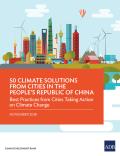
This publication showcases 50 innovative case studies from cities in the People’s Republic of China that are mitigating against and adapting to climate change. Solutions being implemented are proving that reducing carbon dioxide emissions and protecting the environment need not sacrifice economic prosperity and that they can also create valuable co-benefits in terms of positive impacts on public health and quality of life. The solutions cover a wide range of objectives, including reducing energy consumption, greening and cleaning energy supply, transforming the concept of waste, promoting green and blue spaces, and improving urban mobility.
